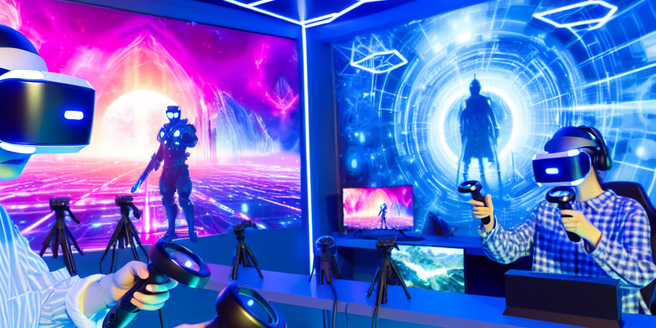Disruptive Strategies In Game Promotion Dynamics

Understanding Disruption: The New Norm in Gaming
Disruption in gaming has become the new norm, driving rapid changes and innovation. As traditional models fall by the wayside, new strategies emerge that focus on immersive experiences and player engagement. Gaming companies are now adopting disruptive technologies to keep up with fiercely competitive markets. These include augmented reality, virtual reality, and artificial intelligence to create rich and compelling worlds. Disruption also means breaking free from conventional marketing approaches. Instead, developers are prioritizing community building and organic growth. This shift is redefining success and challenging developers to think beyond game mechanics, focusing more on player experience and long-term engagement. Ultimately, understanding and embracing disruption allows companies to stay ahead of trends and lead the market in innovative ways.
Innovative Approaches to Captivating Audiences
Captivating modern gaming audiences demands innovative approaches. Traditional advertising is no longer sufficient for an industry driven by creativity and interactivity. Game developers are now leveraging storytelling and unique narratives to captivate audiences from diverse backgrounds. Through episodic content, players remain engaged, eagerly anticipating new releases. Interactive live-streams and eSports tournaments offer immersive experiences, drawing players into the action. Collaborations with popular content creators further amplify reach, allowing games to connect with niche communities globally. Additionally, using sophisticated analytics helps developers understand player preferences and deliver tailored content. This proactive approach ensures ongoing interest and engagement. Developers who embrace diversity and inclusivity in their narratives find themselves more connected with players, leading to more successful and engaging experiences.
Leveraging Social Media for Maximum Impact
In today’s digital era, leveraging social media is paramount for game promotion. Platforms like Twitch, YouTube, and Instagram offer direct access to vast and diverse gaming communities. Through these channels, developers can create buzz and build hype faster than traditional marketing methods. Live streaming events enable real-time player engagement, providing valuable feedback and fostering community bonds. Social media influencers play a crucial role in game promotion by introducing new audiences and validating authentic gameplay experiences. User-generated content further enhances brand visibility, as players share experiences and create organic word-of-mouth promotion. Utilizing targeted advertising on social platforms also ensures that marketing efforts reach the right audience at the right time. By effectively utilizing social media, developers can maximize impact and achieve long-lasting success in a crowded marketplace.
Gamifying Marketing: A Revolutionary Concept
Gamifying marketing represents a revolutionary approach reshaping traditional promotion paradigms. Businesses are embracing game-based principles to enhance consumer engagement across various industries. By integrating game mechanics such as points, levels, and rewards into non-gaming contexts, companies entice consumers and encourage active participation. This interaction fosters brand loyalty and increases customer retention. In gaming, marketing events can transform into immersive experiences that capture the imagination and attention of players. From virtual scavenger hunts to interactive contests, these tactics ensure campaigns are not only impactful but also enjoyable. Gamifying marketing bridges the gap between entertainment and consumer engagement, leading to unique experiences that resonate with audiences. As this concept continues to evolve, it offers limitless potential for creating dynamic and memorable marketing strategies.
Data-Driven Insights: Predicting Market Trends
In an industry where change is constant, leveraging data-driven insights to predict market trends is crucial for success. By analyzing player behavior and engagement metrics, developers gain a deeper understanding of what captivates their audience. This data-driven approach enables the identification of emerging trends and the anticipation of future needs. Companies can fine-tune game features, refine user experiences, and devise marketing strategies that resonate with target demographics. Predictive analytics also plays a vital role, helping anticipate shifts in player preferences and adapting offerings accordingly. Through continuous data collection and analysis, developers can stay ahead of competition and meet ever-evolving consumer demands. As the gaming industry grows increasingly data-centric, harnessing these insights remains indispensable for shaping innovative and successful developments.